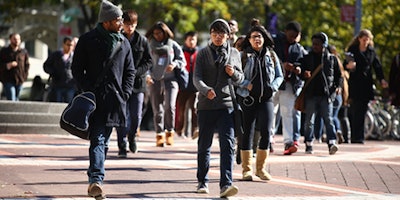Talking about the need to make a college-level education more accessible is common. Everyone understands that a college education is valuable and that many jobs list a degree as a requirement for applying, so those without a college degree are missing out on significant opportunities in the future. So, what does it actually take to make higher education accessible to a larger portion of the population? Affordability.
Understanding affordability
There are numerous programs designed to help students pay for college. Some options, like grants and scholarships, allow students to access funds that do not need to be repaid under most circumstances. But these funds don’t actually make the college experience more affordable, just cheaper. And student loans don’t improve affordability and only delay the need to meet the payment requirements (with interest).
If something is affordable, it is considered within one’s financial means. And for many, the cost of tuition today just isn’t affordable.
Affordability of applying
For many low-income students applying to college, a surprising barrier is the fees associated with the application process. For example, SAT, ACT, and AP exam fees can be substantial. Then, once suitable scores are earned, an additional fee is required for every educational institution to which they apply.

By lowering, or eliminating, some of these costs, higher education can be more accessible to students from lower-income households. Those students will have more opportunities to test, giving them chances to improve their scores over time, as well as the option of applying to more schools.
Improving tuition affordability
The costs of higher education have risen dramatically; at one point tripling over the course of three decades. However, the typical rise in household income is comparably negligible. And that means a college education has become less affordable over time, even though it is now considered to be a necessity.
Lower-income students who don’t find sufficient grants or scholarships to manage the majority of the cost will likely determine that a degree is outside of their reach. Even if loans are available, the amounts required may be too intimidating to students who are part of a household whose annual income falls well below the amount charged as tuition.
Even if tuition amounts can’t be lowered, the affordability for low-income students can be improved by providing resources to help them obtain as much financial assistance as possible in the form of grants and scholarships. Providing education about available opportunities and assistance in meeting application requirements will help the student access more funding sources, and possibly eliminate out-of-pocket expenses.
Cost is barrier
Often, the primary barrier between any student and a college education is the cost. While tuition and fees can’t be entirely eliminated from the paradigm, moves are available to help those most in need navigate these expenses more effectively. Additionally, widening the requirements for free or low-cost testing and application fees will improve the chances that low-income students will earn the scores needed to be accepted into high-quality schools.
Affordability is the key.
Matthew Lynch is a higher education consultant and owner of Lynch Consulting Group, LLC. He currently resides in Richmond, Virginia.















